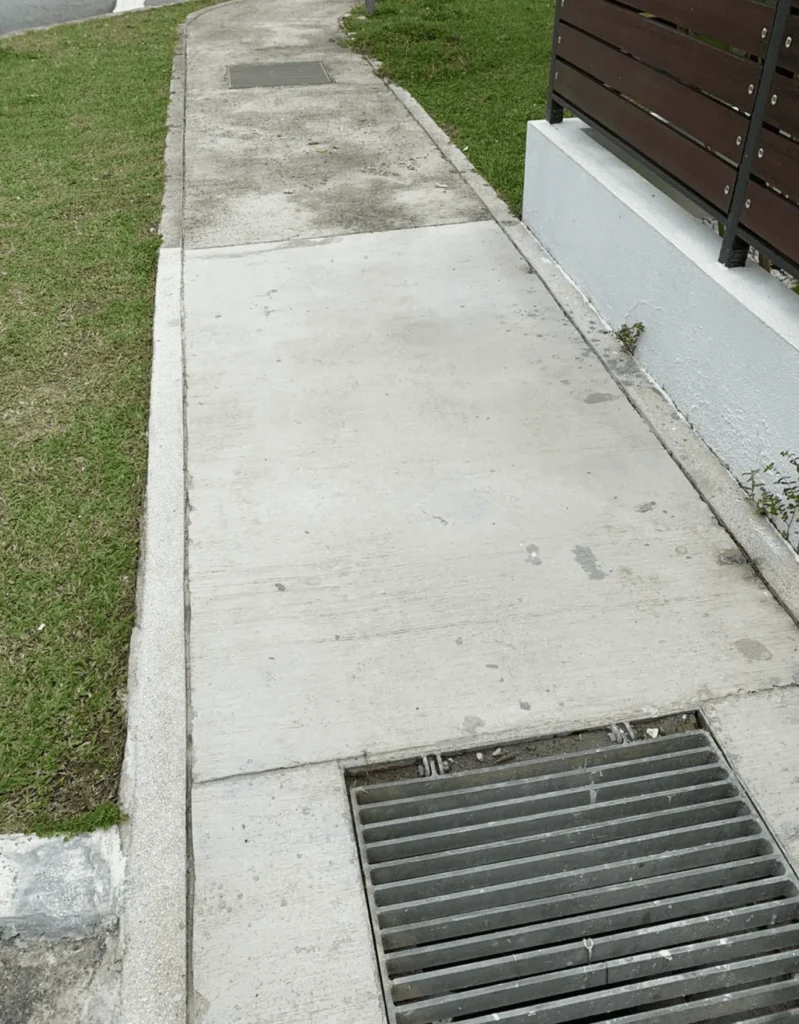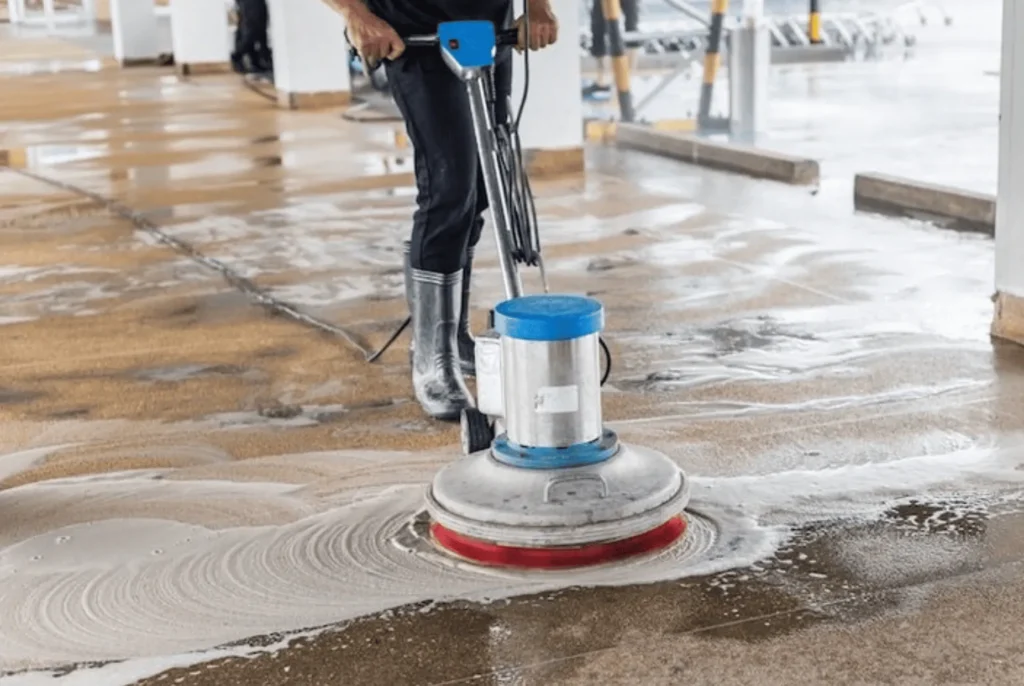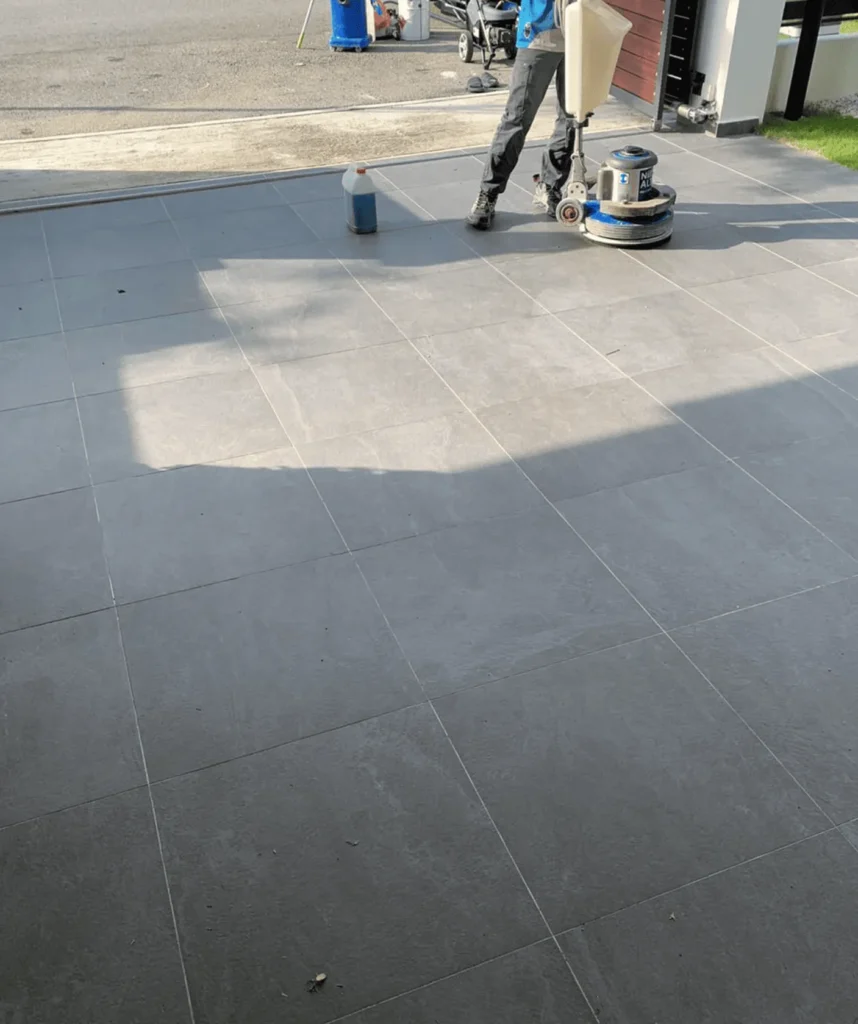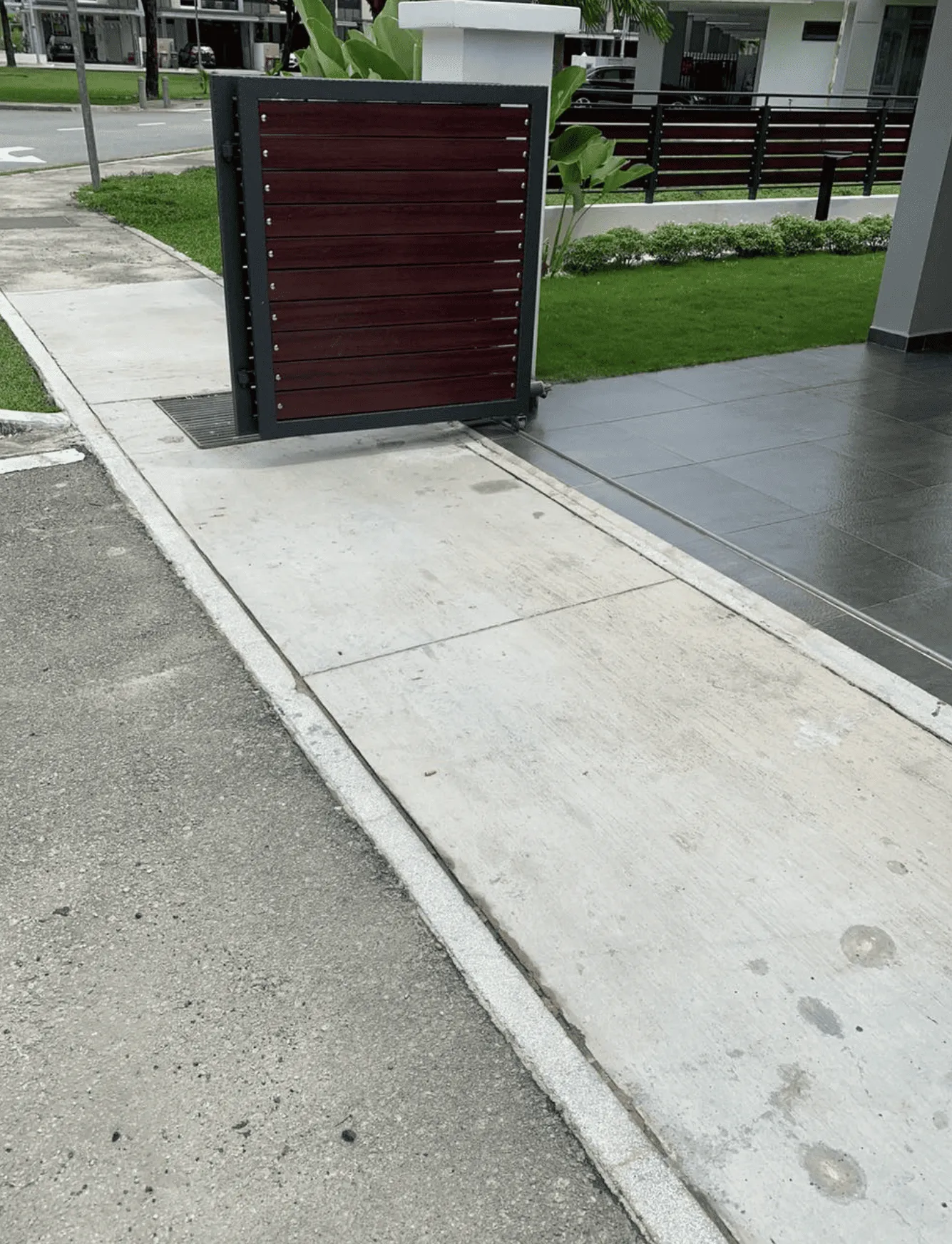Concrete surfaces – driveways, floors, patios etc – are durable and versatile. But being porous they can get stained by various substances – oil, grease, rust, organic matter etc. These stains can be tough to remove and if left untreated can cause long term damage. This guide will show you how to tackle tough stains on concrete surfaces with professional cement cleaning service.
Types of Concrete Stains

- Oil Stains:
Oil stains are common on concrete driveways and garage floors, usually from spilled car fluids. These stains can penetrate deep into the surface and are tough to remove. - Grease Stains:
Like oil stains, grease stains are found in commercial kitchens or industrial areas. They are even tougher due to their thick and sticky nature. - Rust Stains:
Rust stains occur when metal objects or structures like rebar corrode and leach iron onto the concrete surface. These are orange-brown in color and are hard to remove. - Organic Stains:
Organic stains are from food spills, soil, plant matter, other natural substances. These can attract mold and mildew if not treated ASAP. - Mildew and Mold Stains:
Found in damp areas like concrete patios and basements, mildew and mold stains are from excessive moisture. They create black or green patches on the surface. - Rust Stains:
Rust stains are orange-brown in color and are from metal items like rebar corroding over time. Needs specialized treatment to lift the iron deposits from the concrete.
Cement Cleaning Techniques
- Surface Preparation
- Remove Loose Debris:
Start by clearing the concrete surface of loose dirt, leaves and debris. Use a broom or a vacuum to clean the surface and remove any obstructions. - Assess the Stain:
Determine the type and extent of the stain. This will help you choose the right cleaning solution and method.
- Choose the Right Cleaning Solution
- Chemical Cleaners:
- For Oil and Grease Stains: Specialized degreasers or commercial stain removers are needed. Products with solvents or surfactants can break down the oils and fats.
- For Rust Stains: Rust removers or phosphoric acid can be used. Phosphoric acid reacts with iron to lift the stain from the concrete.
- For Organic Stains: Mildew removers or bleach solutions are effective. Use these in a well ventilated area to avoid respiratory issues.
- Non-Chemical Solutions:
- For lighter Scratches, warm water and mild dish soap can work. Baking soda and vinegar are natural alternatives for some stains.
- DIY Solutions: Simple solutions like laundry detergent and warm water can work for some stains.

- Pressure Washing and Power Washing
- Using Pressure Washers:
Pressure washers are good for deep seated stains. Adjust the pressure to not damage the concrete. For larger areas like driveways and patios a pressure washer can clean fast and efficient. - Water Temperature:
Hot water dissolves grease and other tough stains better than cold water. Make sure you use clean water throughout the process, not to add contaminants.
- Scrubbing and Brushing
- Manual Scrubbing:
Use a scrub brush or stiff brush to work the cleaning solution into the concrete. For light stains a soft brush will do, for tougher stains a more abrasive brush. - Using a Spray Bottle:
Apply the cleaning solution evenly with a spray bottle. Let it sit for a few minutes to loosen the stains before scrubbing.
- Post-Cleaning
- Rinsing:
Rinse the surface with clean water to remove any leftover cleaning solution. For large areas a garden hose or high pressure water stream will do. - Sealing and Protection:
After cleaning, apply a concrete sealer to protect the surface from future stains. Sealers create a barrier that prevents stains from penetrating and makes future cleaning easier. - Maintenance:
Regular cleaning and maintenance will prevent tough stains from building up. Schedule regular cleanings and address spills as they happen to keep your concrete surfaces looking good.
- Advanced Techniques for Severe Stains
- Chemical Strippers:
Professional grade chemical strippers for extremely tough stains. These products will break down and remove tough stains. - Deep Cleaning Methods:
Professionals may use advanced cleaning technologies like rotary scrubbers and specialized extraction equipment to get a deeper clean. - Surface Repair:
If the stain has caused surface damage, concrete resurfacing or patching may be required. This will restore the surface to its original state.
Why Hire a Professional Cement Cleaner

- Expertise and Equipment:
Professionals have the equipment and specialized cleaning solutions for different types of stains. Their expertise will get the job done and minimize surface damage. - Time and Effort:
Hiring a professional saves you time and physical effort for large or heavily stained areas. They will take care of everything from prep to post cleaning care. - Safety:
Handling chemicals and high-pressure equipment requires training and safety measures. Professionals are trained to use the tools safely and follow strict safety protocols to avoid accidents and injuries. - Long Term Results:
Proper cleaning and sealing by professionals will enhance the appearance and longevity of your concrete surfaces. They can also fix deeper issues like surface deterioration and provide solutions to prevent future problems. - Cost Effective:
Investing in professional cleaning will prevent damage and reduce the need for frequent cleanings or repairs. This will be a long term savings by maintaining your concrete surfaces and extending their life.
FAQ
What kind of stains can professional cement cleaning remove?
Professional cement cleaning can remove oil stains, grease stains, rust stains, organic stains and mildew stains. The cleaning solution and method will depend on the type of stain and the surface.
How often should I get my concrete surfaces cleaned?
Frequency of cleaning will depend on the surface type, use and exposure to the elements. High traffic areas or surfaces exposed to harsh conditions should be cleaned at least once a year. Low use areas can be cleaned less often.
Can professional cleaning prevent future stains on concrete surfaces?
While professional cleaning removes existing stains, applying a concrete sealant after will help protect the surface from future stains. Regular maintenance and prompt cleaning of spills will also help prevent future staining.
Are the chemicals used in professional cement cleaning safe?
Professional cleaning services use chemicals that are designed to be effective and environmentally friendly. They follow strict safety protocols to minimize risk. It’s best to ask about the chemicals used and the safety measures in place before the cleaning starts.
What do I need to do to get my concrete surfaces ready for cleaning?
Clear the area of loose debris and obstructions. Give us information on the type of stains and condition of the surface.
